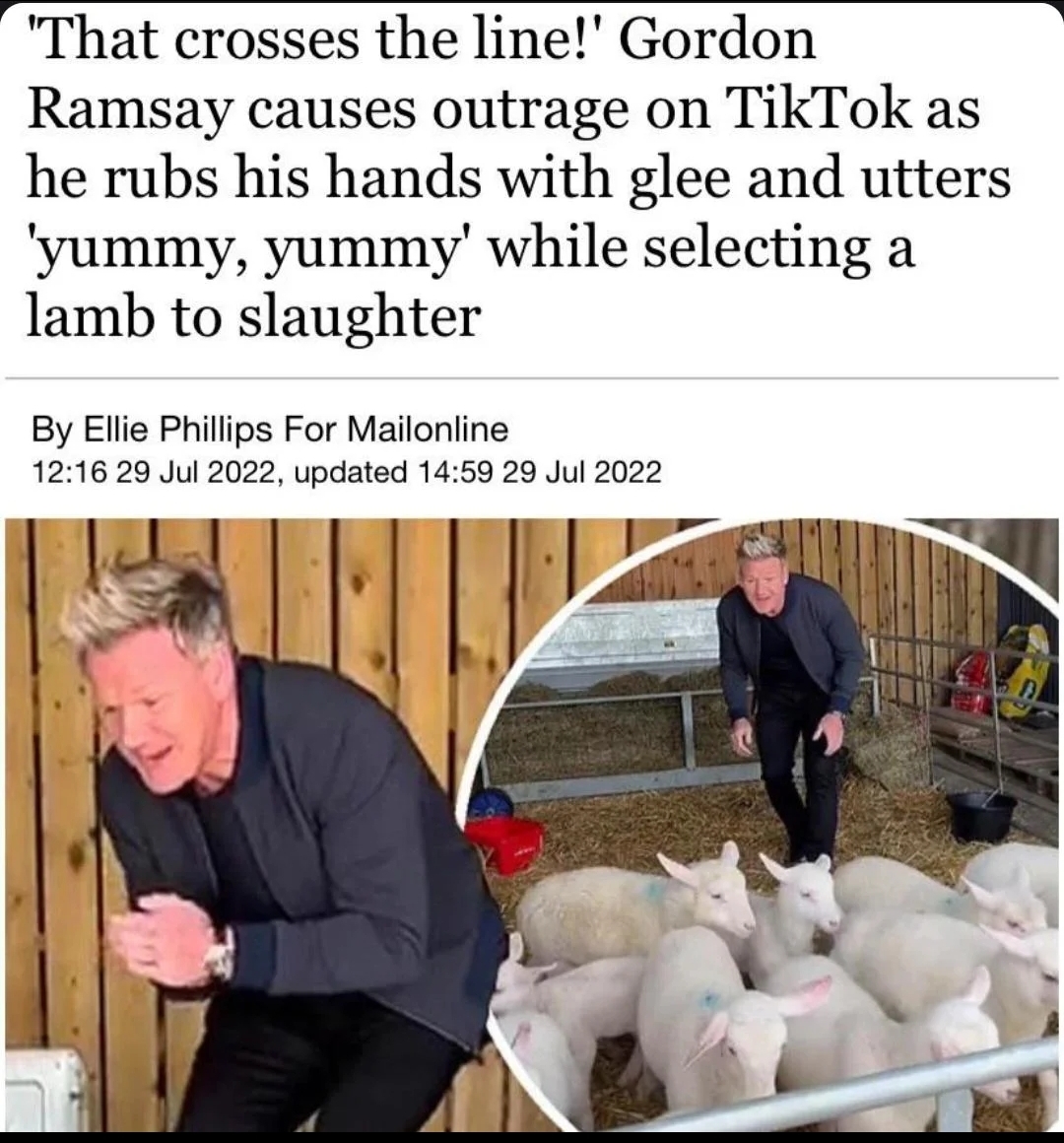this post was submitted on 17 Oct 2023
565 points (89.8% liked)
Funny: Home of the Haha
7972 readers
8 users here now
Welcome to /c/funny, a place for all your humorous and amusing content.
Looking for mods! Send an application to Stamets!
Our Rules:
-
Keep it civil. We're all people here. Be respectful to one another.
-
No sexism, racism, homophobia, transphobia or any other flavor of bigotry. I should not need to explain this one.
-
Try not to repost anything posted within the past month. Beyond that, go for it. Not everyone is on every site all the time.
Other Communities:
-
/c/TenForward@lemmy.world - Star Trek chat, memes and shitposts
-
/c/Memes@lemmy.world - General memes
founded 2 years ago
MODERATORS
you are viewing a single comment's thread
view the rest of the comments
view the rest of the comments

The reason for the name isn't to make it more palatable, at least originally. The name for the animal comes from the peasants, speaking old English, and the name for the food came from the nobility speaking French, who didn't have to deal with the animals. We call adult sheep meat mutton, for example, not to make it palatable, but because of the history of the language. Same for deer/venison, pig/pork, cow/beef, etc.
Edit: actually I don't know if this is true for lamb, but for veal and the rest it's true.
In my language, which is very distant from the english/frank dicotomy, we never had that distinction between peasant and nobility food and still we get a lot of words to distinguish between meats.
Mutton is either carneiro/ovelha (ram/sheep) or just chanfana (this word is used to denote the meat comes from a fully matured animal, over a minimum of two years old, usually around four or five).
Lamb can either be borrego (most commonly used word) or anho (a less used word, alledgely tied to the time we were under moorish occupation).
The words are imperative and not there to make things more palatable; these can't be thrown around to designate the meat solely, as the meat designates the animal and vice versa.